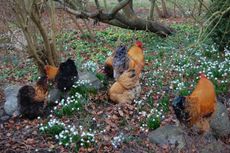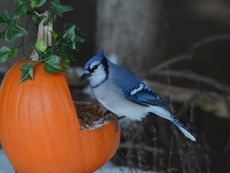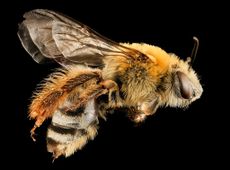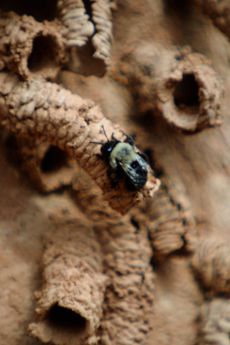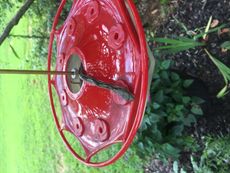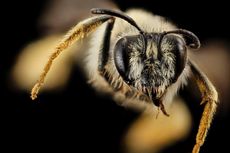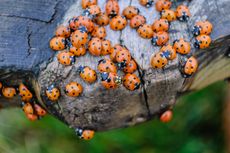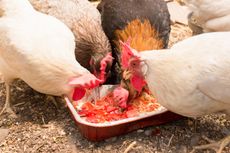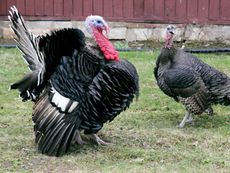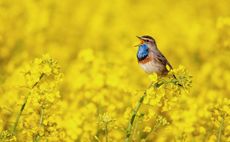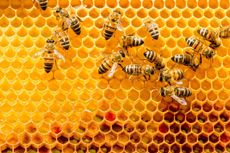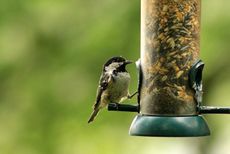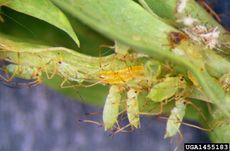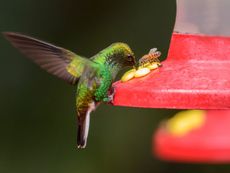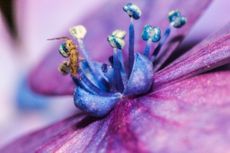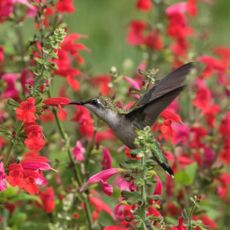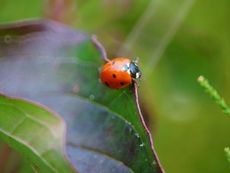Beneficial Garden Friends
There are many beneficial wildlife helpers in the garden. From natural predators that feed on pests and good garden bugs that pollinate plants to other garden friends likes frogs and birds, learning how to make your garden an inviting spot for them can help your garden flourish. In the following pages, you can find useful information on how to create garden friendly areas for beneficial insects and other garden friends. So keep reading to learn more about these wildlife helpers in the garden and how to take advantage of the benefits they offer.
Beneficial Garden Friends
-
Garden Plants Toxic To Chickens: What Plants Are Bad For Chickens
One important aspect of raising chickens is maintaining healthy living environments - ensuring that the flock is always safe. And this includes knowing what plants are bad for chickens, especially when they’re free to roam your property. Learn more here.
By Tonya Barnett
-
DIY Pumpkin Shell Bird Feeder – Using Recycled Pumpkins For Birds
Many birds migrate south before winter and, if you’re along their route, you might offer a seasonal treat like a pumpkin bird feeder. Learn more here.
By Becca Badgett
-
Squash Bee Info: Are Squash Bees Good To Have In The Garden
More gardeners need good squash bee information because these honey bee look-alikes are critically important for vegetable gardening. Learn how to identify squash bees, why you want them in your yard, and how to attract and keep them there in this article.
By Mary Ellen Ellis
-
What Are Digger Bees – Learn About Bees That Dig In The Dirt
The United States is home to approximately 70 species of digger bees, primarily in the western states. Around the world, there are an estimated 400 species of these interesting creatures. So, what’s the dirt on bees that dig? Learn about identifying digger bees here.
By Mary H. Dyer
-
Insects On Hummer Feeders: What To Do For Hummingbird Pests
Many aid hummingbirds by hanging out feeders filled with sugar-water. But insects on hummer feeders can compete with the beautiful birds for this treat, and there are predators out there that see the hummers as lunch. Learn more in this article.
By Teo Spengler
-
Bees And Flower Oil - Information On Oil Collecting Bees
Bees collect pollen and nectar from flowers for food to feed the colony, right? Not always. How about oil collecting bees? Never heard of bees that collect oil? The following article contains information about the little known relationship between bees and flower oil.
By Amy Grant
-
Buying Good Bugs – Should You Purchase Beneficial Insects For Your Garden
Many gardeners prefer organic options for pest control. The use of beneficial insects is one which has shown to be especially popular for growers wishing to take a more natural, hands-off approach. But how do you get these garden friendly bugs into your garden? Find out here.
By Tonya Barnett
-
DIY Chicken Feed: Learn About Growing Natural Chicken Feed
Raising chickens can be worthwhile, but chicken food ain’t cheap! That’s where DIY chicken feed comes in. Yes, you can grow your own chicken feed. Click on the following article to find out how to grow your own natural, homegrown chicken feed.
By Amy Grant
-
Basics Of Keeping Turkeys – How To Raise Turkeys At Home
So you’ve decided to raise turkeys. Here are a few things you’ll want to learn to keep them healthy and growing.
By Becca Badgett
-
Planting A Garden For Songbirds – Top Plants That Attract Songbirds
A garden has its own inherent pleasures, but for gardeners who love wildlife and beautiful music, it can be used to attract songbirds. Attracting songbirds can be the main focus of your garden or just a small part of it. This article will help get you started.
By Mary Ellen Ellis
-
How Many Bee Species Are There – Learn About The Differences Between Bees
Bees are so important to growing food because of the pollination services they provide. Many of our favorite nuts and fruits would be impossible without bees. But did you know there are several common bee varieties? Learn about them here.
By Mary Ellen Ellis
-
Feeding Backyard Birds: Tips For Attracting Birds To Your Garden
Attracting birds to your garden is good for the garden as well as the birds. Natural habitats that provide birds with food, shelter and water will encourage their presence. Learn more in this article.
By Jackie Carroll
-
What Is An Aphid Midge: Using Aphid Midge Insects For Pest Control
Aphid midges are one of the good garden bugs. Chances are that if you have aphids, aphid midges will find their way to your garden. Learn more about using aphid midge insects for pest control right here.
By Jackie Carroll
-
Bees In Hummingbird Feeder – Why Do Wasps Like Hummingbird Feeders
If you have hummingbird feeders, then you have probably noticed that bees, including wasps, love the sweet nectar. Although uninvited guests, keep in mind they are important pollinators. For tips on managing bees and wasps at hummingbird feeders, click here.
By Mary H. Dyer
-
Thrips And Pollination: Is Pollination By Thrips Possible
Did you know that thrips spread more than just disease? That?s right - they do have a redeeming quality! Thrips are actually helpful too, as pollinating thrips can help spread pollen. Learn more about thrips and pollination in this article.
By Shelley Pierce
-
Hummingbird Garden Ideas: Best Flowers For Attracting Hummingbirds
Hummingbirds are a delight to watch as they dart and dash around the garden. To attract hummingbirds to the garden, consider planting a perennial garden for hummingbirds using the tips in this article.
By Jackie Carroll
-
Tips To Attract Ladybugs To Your Garden
Ladybugs in the garden will help eliminate many pests. Getting ladybugs to come to your garden and, more importantly, stay in your garden is easy using a few simple tricks from this article.
By Heather Rhoades

